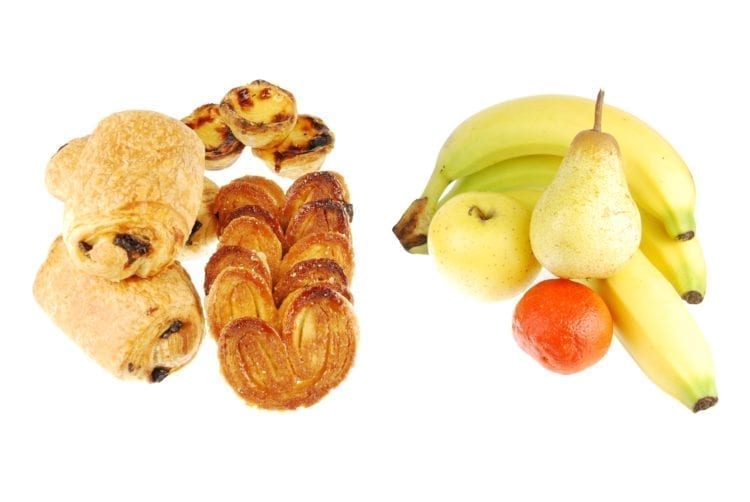I remember sitting in a University nutrition class listening to the professor explaining the concept of thermodynamics and caloric balance. It was a simple math equation, if calories in are less than calories out your end result is weight loss. Wow! I felt like I was just let in on the worlds most kept secret. I couldn’t wait to start working with clients and helping them lose weight. This was going to be simple!
Fast forward about 3 years, I’m now managing a personal training department at a big box gym and training multiple clients a day. I’m preaching the word of the calorie counters and making up nutrition plans based on numbers. Results were very poor! hmmm… Maybe we need to restrict calories more, ya that must be it! So we increase that caloric deficit and nothing happens. This problem is consistent across the board. Trainers are more concerned about number of calories instead of quality of calories. OK, time to rethink this strategy.
It finally hit me! The source of the calories (caloric density) is far more important than the absolute number. Think about it. How can 1000 calories from pure sugar be the same as 1000 calories from pure broccoli? If you look at the numbers alone, you miss out on the fact that there are numerous other factors to consider. For example, the pure sugar would result in a massive influx of glucose and resultant sugar spike and insulin response. This would force the liver to increase its function and store excess sugar as fat! The broccoli would also provide you with fibre, necessary nutrients, vitamins, and anti-oxidants. These are things you would never consider when looking at just the calories alone.
You see where I’m coming from?! It’s not that simple. This is the problem that I had run into with my clients. At the beginning of my career I was recommended low calorie diets based around whole grains and not necessarily looking at the results the food has on your body. Sorry guys! There are numerous factors to consider. The quality of the food is important; you have to look at the nutrient content: the vitamins, minerals, carbohydrates, proteins, and fats. You have to take into account the blood sugar response that goes along with it and the resultant effect it has on your blood sugar! Regulating your blood sugar is far more important than worrying about staying within specific calories guidelines. Sudden rises in blood sugar will result in insulin being secreted and excess glucose being stored as…you guessed it, Fat! The very thing you are trying to avoid. We need to get out of this flawed way of looking at weight loss as a simple math equation and start treating it like what it really is….stabilizing hormonal imbalances through the use of high quality nutrient dense foods.
Author: Paul Skiba, R.Kin, RHN, CEP
Registered Kinesiologist
Registered Holistic Nutritionist
Certified Exercise Physiologist






































